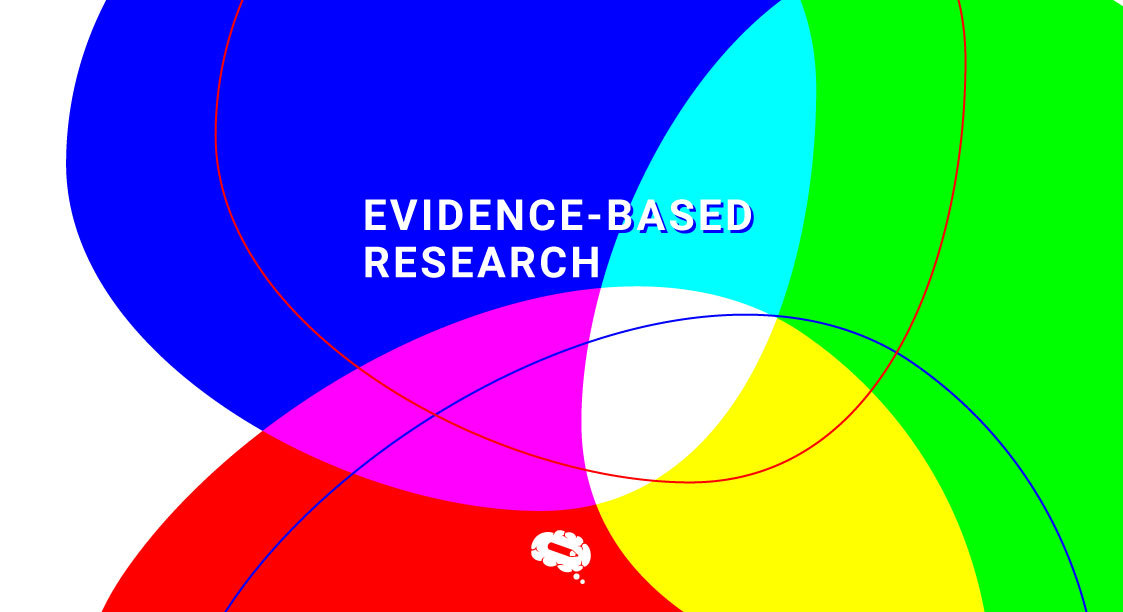Evidence-based research is a systematic and objective approach to finding, evaluating, and using scientific evidence to inform decision-making and practice in various fields. This approach is critical for promoting best practices, improving outcomes, and maximizing the impact of interventions and policies in various fields.
In this article, we will discuss how evidence-based research can be used to improve decision-making, promote accountability, advance scientific knowledge, increase efficiency and cost-effectiveness, and ensure safety. We will also explore the different strategies that researchers can use to conduct evidence-based research.
What is evidence-based research?
Evidence-based research is a type of scientific investigation that involves collecting and analyzing data to support or refute a hypothesis or research question, the aim is to use the best available evidence to make informed decisions.
The goal of evidence-based research is to provide reliable and valid evidence that can be used to inform policies, practices, and interventions that are based on scientific evidence rather than on anecdotal evidence, personal experience, or opinion. This approach typically involves a thorough review of existing literature, including randomized controlled trials and other types of research studies, to identify the most reliable and valid evidence available.
In evidence-based research, the data and methods used are carefully chosen based on their reliability, validity, and generalizability to the population of interest. This involves the use of meticulous research designs, such as randomized controlled trials or meta-analyses, to minimize bias and ensure that the findings are reliable and trustworthy. It also involves the use of statistical methods and other analytical techniques to evaluate the strength and quality of the evidence, as well as to identify any potential limitations or biases that may affect the validity and generalizability of the findings.
Why is evidence-based research important?
Evidence-based research is important for several reasons:
Improving the quality of decision-making
Provides practitioners and researchers with reliable and valid information that can be used to make informed decisions about policies, interventions, and practices.
Promoting accountability
Promotes accountability by requiring researchers to justify their decisions and actions based on scientific evidence rather than personal opinions or beliefs.
Advancing scientific knowledge
Contributes to the advancement of scientific knowledge by generating new insights and ideas, and by identifying gaps in existing knowledge.
Increasing efficiency and cost-effectiveness
This can help identify interventions and practices that are most effective, efficient, and cost-effective, thereby maximizing the benefits of limited resources.
Ensuring safety
Can identify potential risks and safety concerns associated with certain practices and interventions, thereby promoting safety and minimizing harm.
Overall, evidence-based research is critical for promoting best practices, improving outcomes, and maximizing the impact of interventions and policies in various fields.
What are evidence-based research strategies?
Researchers use several evidence-based research strategies to conduct systematic and reliable studies. Some common strategies include:
Randomized controlled trials (RCTs)
RCTs are considered the gold standard for evaluating the effectiveness of interventions. In an RCT, participants are randomly assigned to either the treatment group or the control group, and the outcomes are compared between the two groups. This approach helps to minimize bias and increase the internal validity of the study.
Systematic reviews and meta-analyses
Are used to synthesize the results of multiple studies on a particular topic. This approach helps to increase the statistical power of the analysis and provides a more comprehensive and accurate picture of the evidence.
Observational studies
Are used to examine the relationship between variables in a natural setting. Unlike RCTs, observational studies do not involve the manipulation of variables but rather observe naturally occurring phenomena. Observational studies can be useful when RCTs are not feasible or ethical, but they may be more prone to bias and confounding.
Qualitative research
Is used to explore and understand complex social phenomena. This approach involves collecting data through interviews, focus groups, or observations and analyzing the data for themes and patterns. Qualitative research can provide rich and in-depth insights into complex phenomena but may be less generalizable than quantitative research.
Cost-benefit analyses
Are used to evaluate the economic impact of interventions. This approach involves comparing the costs of an intervention to its benefits, and determining whether the benefits outweigh the costs.
These strategies can be used in various combinations depending on the research question and the available data. The goal of evidence-based research is to use the most appropriate strategy or combination of strategies to obtain reliable and valid evidence that can inform decision-making and practice.
Join our fast-growing community to revolutionize scientific communication
Mind the Graph is an innovative platform that empowers scientists and researchers to create high-quality scientific illustrations, infographics, and graphical abstracts to enhance the visual impact of their research publications, presentations, and posters. By joining Mind the Graph community, scientists can revolutionize the way they communicate their research findings, making their work more accessible, engaging, and impactful for a broader audience.

Subscribe to our newsletter
Exclusive high quality content about effective visual
communication in science.





